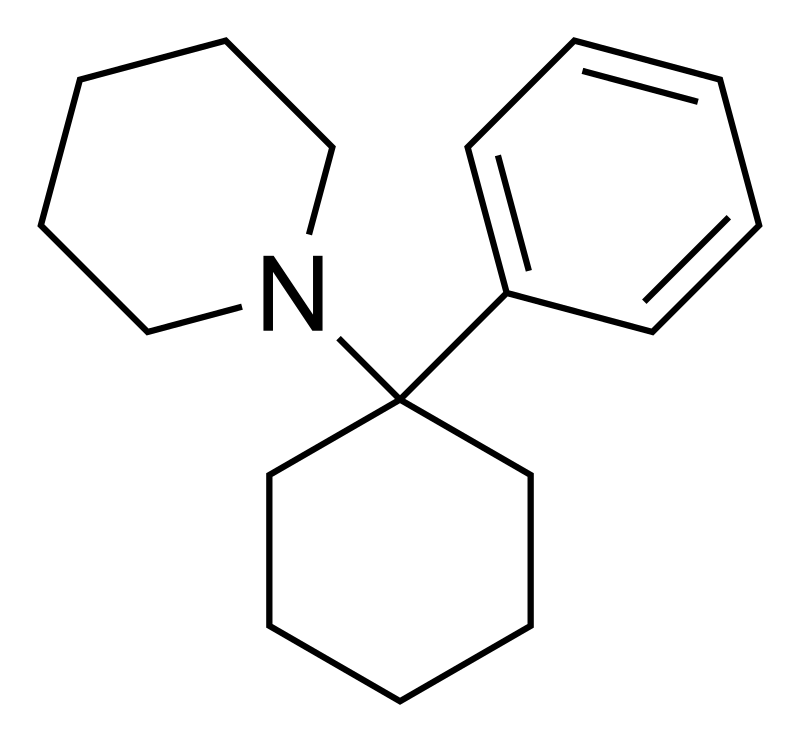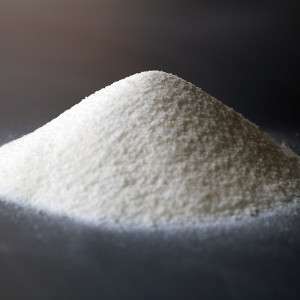
Phencyclidine (PCP)
“Phencyclidine” belongs to the group of hallucinogens. The main feature of these narcotic drugs is to completely change the nature of the consumer’s thinking and mood. They do not act immediately on the central nervous system in such a way that they cause its overexcitation towards euphoria, sometimes into a state of severe depression or aggression.
The most dangerous consequence of the use of the hallucinogen “Phencyclidine” (PCP) is considered to be the destruction of the dependent’s ability to think logically, this often becomes the cause of incorrectly made decisions or even to accidental deaths. They are often able to provoke critical situations from which they themselves suffer and cause harm to others.
What is angel dust “Phencyclidine” (PCP): origin of the drug, history
“Phencyclidine” was originally created for general anesthesia. As an analgesic, it began to be used by physicians since the middle of the last century. But after a while, despite a number of advantageous qualities, doctors recorded a number of serious traffic jams. In patients who underwent surgery, it caused hallucinations or other mental abnormalities, severe depression, nervous overexcitation.
The drug was urgently withdrawn from legal use and circulation. However, some “efficient businessmen” managed to try it in achieving drug intoxication. Today, “Phencyclidine” is included in the register of prohibited drugs and is classified as dissociative anesthetic narcotic substances. Today it is produced in shed workshops at home or underground laboratories, distributed in youth clubs. The appearance of the deadly potion is a milky–green powder, bitter in taste.

Synthesizing “Phencyclidine” is not so difficult, therefore it is simply impossible to track the delivery routes and production, it is difficult to obtain accurate statistical data on the number of drug addicts with phencycline addiction.
Effects on the body
Angel dust is consumed by smoking, diluted in liquid and drunk or injected intravenously. It is often used as an additive that enhances the effect of intoxication from LSD or cocaine. Before use, the powder of “Phencyclidine” is mixed with powdered glucose, so that the mixture quickly penetrates into the blood from the nasopharynx. Some “experimenters” combine it with marijuana, such a mixture increases the risk of unpredictability of the narcotic effect at times.
The toxic effect of angel dust is significantly enhanced when it is mixed with other psychotropic substances of chemical or vegetable origin. In this case, poisoning with their components is more dangerous and serious. The strong effect of “Phencyclidine” on the psyche is explained by disturbances in the transmission of an electromagnetic pulse in cells directly associated with serotonin. In other words, narcotic components provoke abnormal activation of serotonin receptors, and those, in turn, cause hallucinations.
It is serotonin that is of key importance and responsible for human behavior. Therefore, after taking Phencyclidine, the behavioral spectrum is unpredictable and very extensive. The time and degree of poisoning depends on the dosage and method of drug use.
How does dependence on phencyclidine arise?
Despite the fact that toxic substances and decomposition products of the drug are very slowly excreted by the body, psychological addiction in phencyclidine addicts is considered moderate, and physical, according to narcologists, not at all. However, no one cancels the strongest poisoning already on the second day of taking Phencyclidine. A drug addict with an experience of admission, the so-called “hangover” will be stronger and longer.
The symptoms of withdrawal syndrome from angel dust are as follows:
- inactivity – a resident can spend hours looking at his chosen point without leaving his place;
- poor overall health;
- depression;
- frequent and unmotivated mood swings;
- memory lapses, and serious ones at that;
- aggression;
- hypersensitivity to pain;
- convulsions;
- drowsiness.
The seriousness and insidiousness of the impact of angel dust lies in the one hundred percent development of mental pathologies, often they turn out to be irreversible.
Drug addiction?
The drug when smoking begins to act after 30 minutes, with intravenous administration in the second minute after injection. The drug addict at this moment feels a strong mental impact on the type of the strongest alcoholic intoxication in combination with euphoria. But this action occurs only with a small dosage. With a large one, the feelings are absolutely opposite – detachment, frustration, apathy, drowsiness. By increasing the dose, the dependent can be in this state for up to 10 hours, with a very large dosage, his poor health can last up to several weeks.
An overdose of “Phencyclidine” is fraught with confusion, lack of ability to correctly perceive third-party sounds, and fully think. The muscles are completely overstressed, the body refuses to listen to the “master”. It is possible to form severe intoxication and even death due to the oversaturation of the body with toxins and metabolites.
Symptoms from the use of “Phencyclidine”, as a rule, are reflected from the following sides:
Physiological state.
Physical.
Emotional feelings.
Conscious.
Cognitive functions of the body.
Personal qualities.
A drug addict who has taken a dose of angel dust has:
Dizziness.
Hallucinations.
Unstable emotions.
Speech arousal.
Indifference in the look.
Wrong facial expressions.
Numbness or randomness of movement.
Disorientation in the environment and time.
Strong salivation.
Brutality and vulgarity in conversation.
Reduction of blood pressure.
Immunity to pain.
Memory lapses.
When using a large dosage:
Psychosis accompanied by delirium.
Symptoms of schizophrenic.
Muscle rigidity.
Severe vomiting.
Twitching of the eyeballs.
A strong fall of HELL.
Violation of the work and rhythm of the heart.
Convulsions.
Epileptic seizures.
In case of a serious overdose, death or coma.
Most of the drug addicts with dependence on “Phencyclidine” do not apply to specialized clinics for treatment, and the experience of using angel dust exceeds several years. The danger of this addiction is very serious, the consequences are much more serious than those of opiates. Often, due to the lack of pain during attacks of hallucinations, they cause themselves excruciating physical suffering, demonstrating their own “superpower”: breaking their bones, ligaments, muscles, go out of the windows along the ledge.
If a resident was considered hot-tempered or aggressive before becoming a drug addict, then the effect of “Phencyclidine” enhances these feelings, and this can provoke him to murder or another type of violence. Systematic use of angel dust can cause:
violations and memory lapses – an addict can easily get lost in his native neighborhood and even on the street;
manifestations of spasms in the brain;
insomnia;
schizophrenia due to neurotoxic damage to areas of the brain;
antisocial behavior;
degradation of personality.
